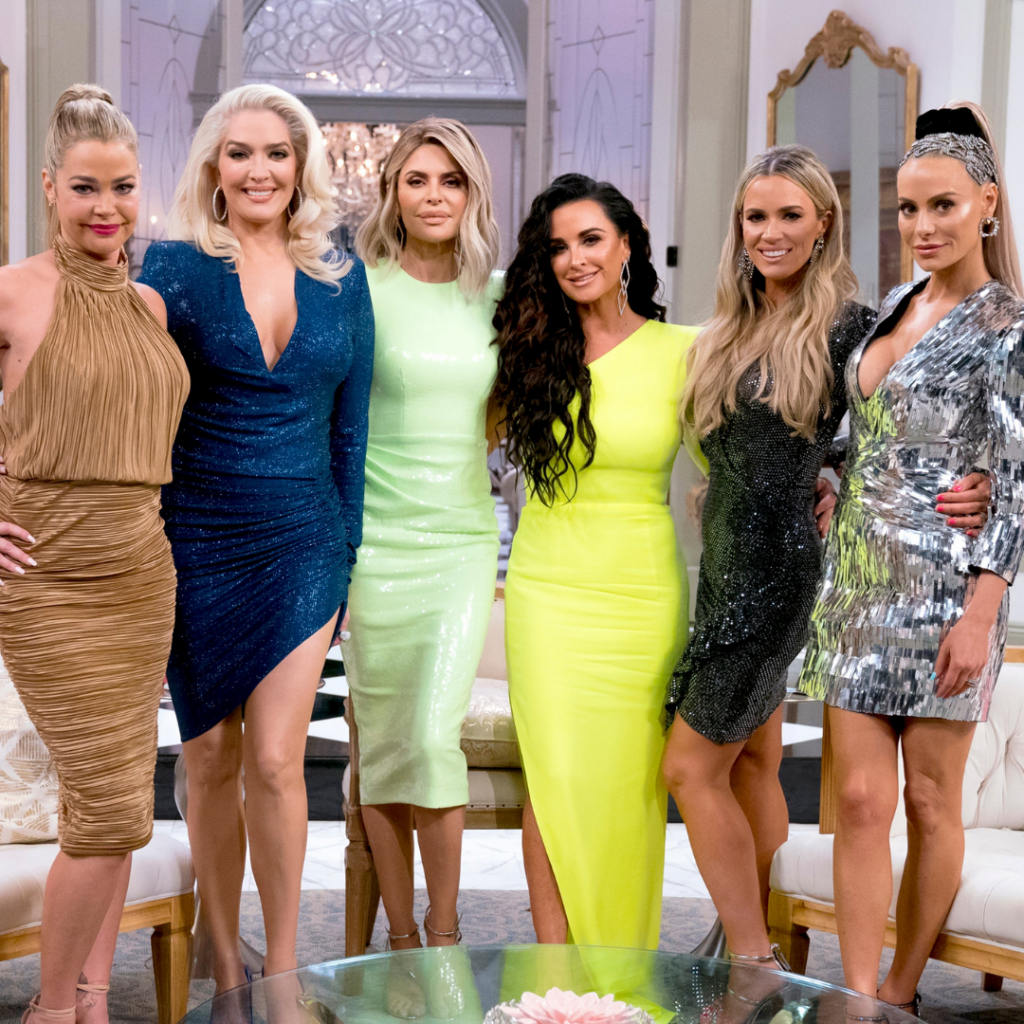You would think that a successful TV show about a group of outspoken, glamorous women would make for a perfect Friday night Netflix binge with your girlfriends. On the surface that is true. However, the ugly truth beneath this assumption is that many people’s favourite ‘switch-on-the-tv-and-switch-off-life’s-stresses’ show is actually pretty detrimental to feminism. This might sound like a contradictory statement; an all-female cast being offered a television platform sounds like a good thing, especially as many of the women both from the UK and international versions of the show have gone on to become successful businesswomen. But as much as the show offers light entertainment, I think it does very little to empower women.
By the very title of the show, the female cast are put on the backfoot. To start with, the very term ‘housewife’ is restrictive and antiquated. Women have worked hard against the patriarchal frameworks of our society for too long for us to still be venerating a TV show that has become iconic in Gen-Z pop culture, despite having a title which inadvertently accepts synonymity with a domesticated, silenced perception of women. When we think about all the potential women have to be successful at work and at home and how countless women have shown they’re capable of doing both, the term ‘housewife’ pulls women back to the 1950s and suggests that even today, it is acceptable for women to be regarded as nothing more than an accessory for their rich, successful husbands.
If you have watched either the UK or any of the international versions of the show, you might be thinking that a silenced female and ‘The Real Housewives’ are entirely incompatible concepts. But that in itself highlights some really unproductive attitudes that the show evokes towards women. The cattiness and conflict which characterises the show and most likely accounts for its large and loyal viewership is not empowering for its female viewers. To have a show on mainstream television that delves deeper into the female experience is great, but making money from women tearing each other down entirely undercuts any feminist message that could come from the premise of the show. The women in the show operate with a ‘if you shout, I’ll shout louder’ mentality which is a really unhelpful attitude when feminists are trying to work towards there being ample room for every female voice in the room to be heard. The cattiness in the show also suggests that women can’t manage with differences in opinion without the conversation dissolving into a screaming match which draws a detrimental comparison to social interactions between men, who are, in contrast, commonly associated with composure and being ‘fuss-free’. There are enough men in the world criticising or trying to place boundaries on successful women, and there is no need for women to join in.
Those familiar with the show will know that each cast member has their own tagline. These opening phrases are a sticking point in themselves for a feminist viewer. The taglines kick off the show with a message that exudes one-upmanship and spiteful competition. For example, Lisa Vanderpump of ‘The Real Housewives of Beverly Hills’ introduces herself with ‘I’m passionate about dogs, just not crazy about b*tches’. It is disappointing that in 2021, women are still using the term ‘b*tch’ to decry other women, especially as this insult has become a conditioned response from men who are intimidated by a confident female and use it to reassert their power.
Not only does the show undermine the great strides for female empowerment being made elsewhere in the public arena, but ‘The Real Housewives’ also paints unrealistic and unattainable expectations of marriage and being a stay-at-home parent for the average viewer. The show paints women as two-dimensional trophy wives who can run a house and raise children without lifting a finger or moving a perfectly preened hair out of place. This image can be very appealing, but it isn’t realistic and this can put an unjust amount of pressure on womxn everywhere. This image can be really demoralising for women who are trying to balance the emotions and practical challenges of motherhood whilst working and supporting those around her. Not only this, but the show is very narrow in terms of representation. It paints the perfect, all-American marriage as middle class and heterosexual and does nothing in terms of empowering womxn of all sexualities or gender identities.
We’re not saying you should boycott the show altogether and erase it from your Netflix list immediately, but with millions of viewers across the globe, the platform could be used more productively to promote female empowerment and show how womxn can be successful whilst supporting and uplifting each other. Until ‘The Real Housewives’ starts to encourage discourse around how the voices of womxn could be used to promote change, it risks falling into the abyss of pop culture phenomena which are potentially fun to watch but miss an opportunity to make a statement about the power of the female voice.
DISCLAIMER: This article is an opinion piece. All views expressed belong to the writer and do not necessarily reflect the views of The New Feminist.
